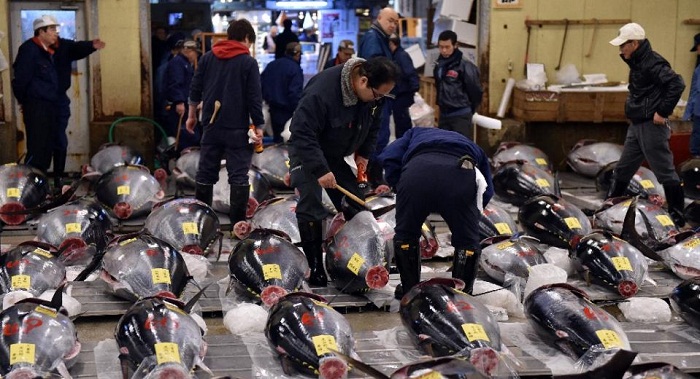Critics said a commission meeting, which wrapped up in the Indonesian island of Bali late Tuesday, also did nothing to prevent shark-finning and illegal fishing.
"It`s unbelievable that faced with scientific evidence on the alarming state of the Pacific`s remaining tuna stocks, the countries here have done nothing to help their conservation," Greenpeace delegation head Lagi Toribau said.
The Pacific is the world`s largest tuna fishery, accounting for almost 60 percent of the global catch and generating about $6 billion a year.
But its stocks are dwindling and conservationists say urgent action is needed to ensure the fishery remains viable.
Much of the discussion at this year`s meeting centred on saving bigeye tuna, which scientists estimate has fallen to just 16 percent of its "unfished biomass" -- the population level before industrialised fishing began.
Pew`s Amanda Nickson said there was great concern that scientific advice was being ignored on conserving bigeye and bluefin -- which is at just four percent of unfished biomass.
"After another year with no action, the sustainability of the world`s largest tuna fishing grounds remains in question," she said.
The stalemate stems from the differing interests of the commission`s main players -- small Pacific island nations and so-called "distant-water fishing nations".
The distant-water nations come from as far afield as Europe, China, the United States, South Korea, Japan and Taiwan to fish Pacific tuna.
The island nations accuse them of being reluctant to curb the lucrative industry in the interests of long-term conservation.
"This is a very complex environment with so many different interests and sub-regional interests," said European Union head delegate Angela Martini.
"The management measures that have been adopted here are not commensurate with the gravity of the issue. The situation is extremely serious."
More about:
















































